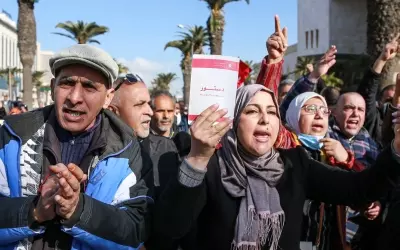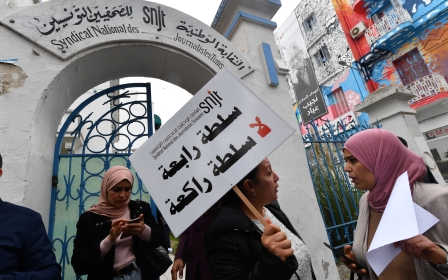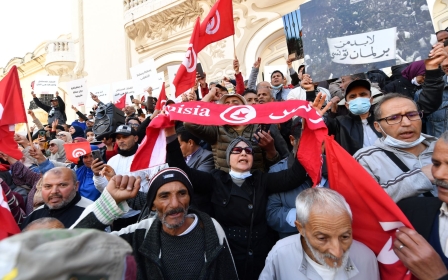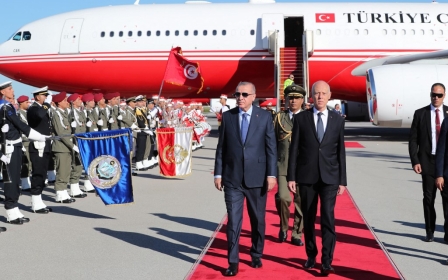Tunisia coup: Saied seizes control of electoral commission in latest power grab
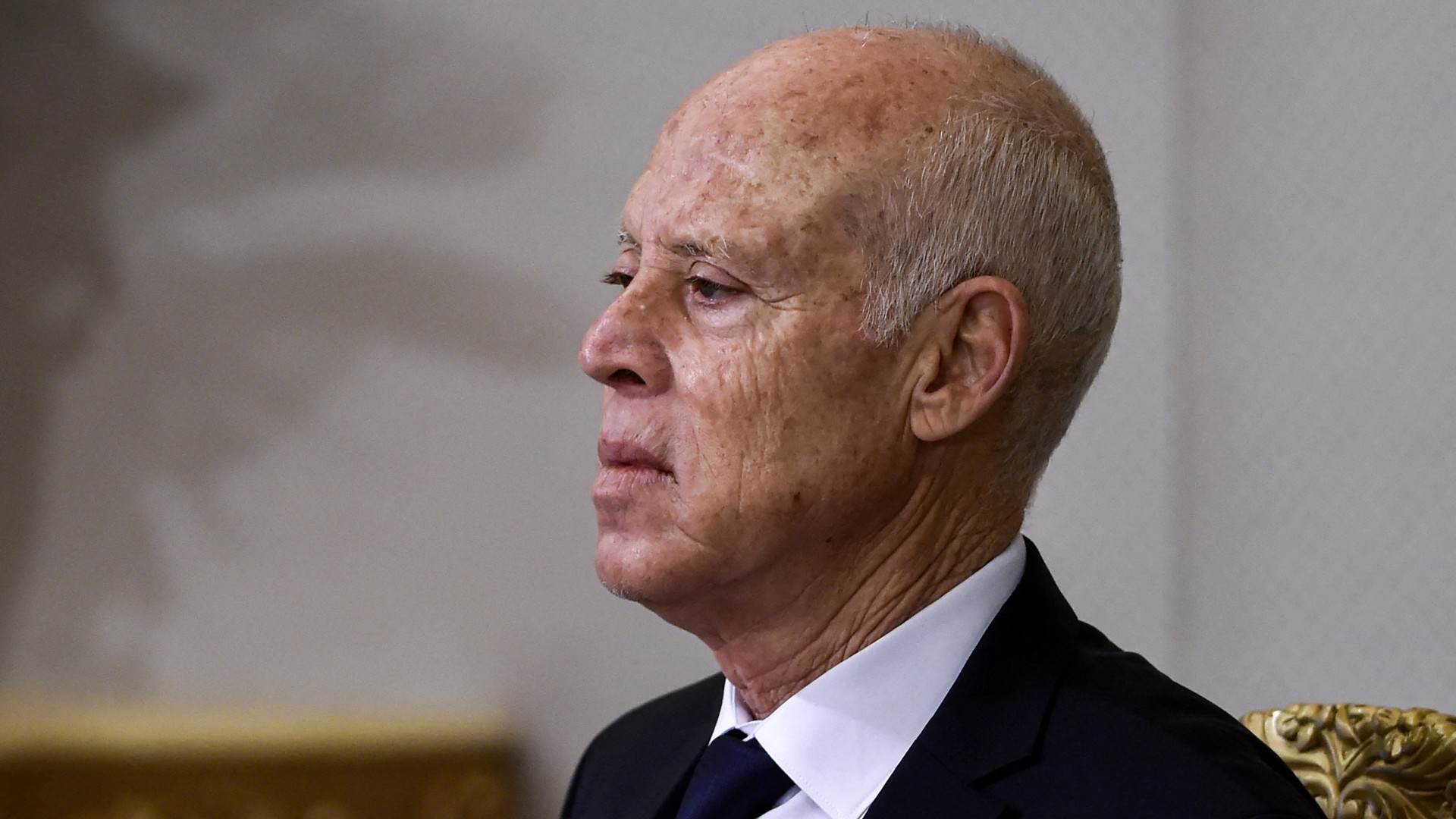
Tunisia's president seized control of the country's electoral commission on Friday, saying he would replace most of its members, in a move that will entrench his one-man rule.
President Kais Saied has already dismissed parliament and taken control of the judiciary, after assuming executive authority last summer in a plot leaked to Middle East Eye two months before it was enacted.
Saied, who says his actions were both legal and necessary to save Tunisia from an "imminent threat", is rewriting the democratic constitution introduced after the 2011 revolution, and says he will put it to a referendum in July.
In his decree on Friday, Saied said he would select three of the existing nine members of the electoral commission (ISIE) to stay on, serving in a new seven-member panel with three judges and an information technology specialist.
The judges would be selected by the supreme judicial council, a body he also unilaterally replaced this year, in a move seen as undermining the independence of the judiciary.
New MEE newsletter: Jerusalem Dispatch
Sign up to get the latest insights and analysis on Israel-Palestine, alongside Turkey Unpacked and other MEE newsletters
Tunisia's electoral commission head Nabil Baffoun told the Tunisian radio station Mosaique FM that Saied's decree was a blow to the democratic gains of the country's 2011 revolution.
"It has essentially become the president's commission," he said.
Baffoun had angered Saied by criticising his plans to hold a referendum and a later parliamentary election, saying such votes could only happen within the framework of the existing constitution.
"I have felt disappointment since 25 July," he said, "and I was adamant that I would not get involved in this path; but I have to, because the things that were achieved since 2011 are beginning to crumble."
Monica Marks, a Tunisia expert at New York University in Abu Dhabi, said she was shocked at the speed at which Saied had tightened his grip on power.
"Saied's decision to recompose ISIE, Tunisia's elections organising commission - which had been a hallmark achievement of its post-2011 democratic transition - extends his white-knuckled grasp over what were Tunisia's hard-won independent institutions. Another sad day for Tunisia," she said on Twitter.
While Saied has focused on restructuring Tunisian politics, a looming economic crisis threatens to unravel his plans, as the government struggles to finance its 2022 deficit and repay debts.
"The biggest threat to Saied remains Tunisia's economy, which sinks to increasingly dire lows in absence of any effective leadership. But whether enough Tunisians recognise this & rise up in time to stop KS from remaking entire political system in his image is uncertain at best," Marks added.
Middle East Eye delivers independent and unrivalled coverage and analysis of the Middle East, North Africa and beyond. To learn more about republishing this content and the associated fees, please fill out this form. More about MEE can be found here.


